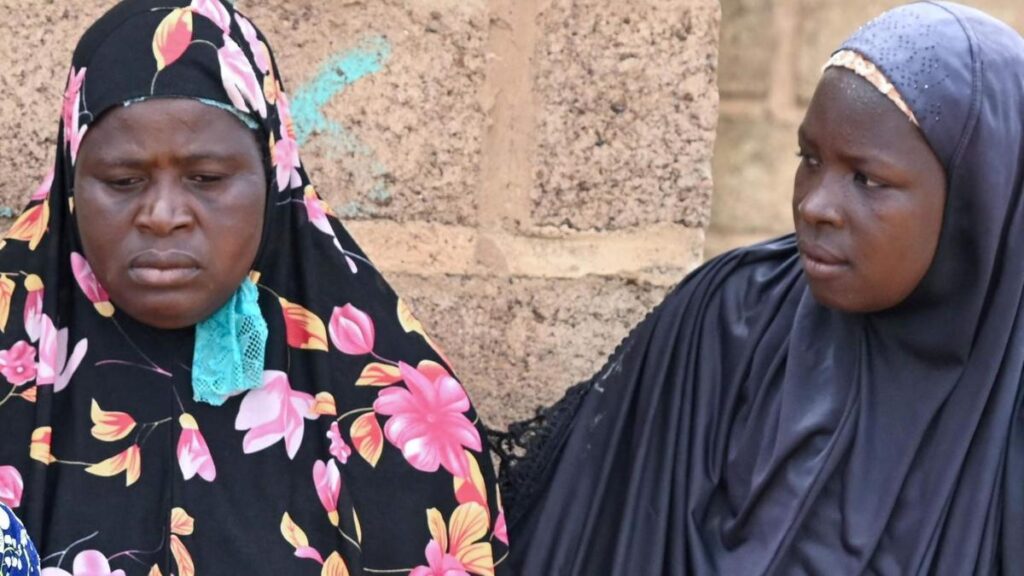Islamist insurgents in Burkina Faso have stepped up attacks on civilians, carrying out house-to-house killings, slitting throats and targeting Christian worshippers, according to a report by activist group Human Rights Watch (HRW).
Data was cited showing that more than 6,000 people were killed in the West African state in the first eight months of the year, including about 1,000 civilians killed by Islamist insurgents.
Since 2016, Burkina Faso has been fighting jihadist groups, including groups with ties to al-Qaeda and Islamic State (IS).
When Captain Ibrahim Traoré seized power in a coup two years ago, he promised to improve the dire security situation within “two to three months.” But the violence has only increased.
The HRW report, released on Wednesday, documents the horrific atrocities committed by jihadists.
According to HRW, attacks are often carried out in retaliation against communities that refuse to join the jihadists or are accused of collaborating with government forces.
An attack in February on churchgoers in the northeastern village of Essakane killed 12 people.
“I saw a big pool of blood and blood stains all over the church, and also bullet holes in the pews,” said one survivor who lost his brother at the hands of the attackers.
The Islamic State in the Greater Sahara (ISGS), one of the main militant groups in Burkina Faso, claimed responsibility for the attack.
Fighters from the al-Qaeda-linked group Jama’at Nusrat al-Islam wal-Muslimin (JNIM) were also mentioned several times in the report.
“The jihadists opened fire indiscriminately in the village,” said a 35-year-old farmer who witnessed an attack by suspected JNIM fighters in the town of Sindo, Hauts-Bassins region, on June 11.
“We found bodies in the village, on the outskirts of town and in the bushes. Some had been shot, others had their throats cut,” said another resident.
Witnesses also said militants stormed the town of Mansila in June after the killing of dozens of soldiers at an army base in the area. Locals told HRW that jihadists went door to door, evicting people from their homes and killing men they accused of collaborating with the military.
According to HRW, the Burkina Faso military and affiliated civilian groups have also committed atrocities during operations against the rebels.
A previous report from the watchdog accused the Burkinabe army of massacring at least 223 civilians in February.
Large parts of the West African country are controlled by jihadist groups, with the government controlling only about half of the country.
According to HRW’s report, the Armed Conflict Location and Event Data Project (ACLED) recorded more than 6,000 deaths in the first eight months of the year, including about 1,000 civilians killed by jihadist groups.
According to HRW, these figures do not include the 100 to 400 civilians killed in an August 24 attack in the northern town of Barsalogho.
JNIM claimed responsibility for the massacre.
Experts told the BBC that the scale of the attack on Barsalogho points to a wider problem in Burkina Faso’s security architecture.
“The country has yet to come up with a security strategy that can defend not only its people but also its territorial integrity,” said David Otto, an international defense and security analyst.
Ryan Cummings, who co-authored a book on Islamic State in Africa, said: “We often hear reports from some commanders in the Burkina Faso army that they have less ammunition than the insurgents have access to, and that is a worrying development.”
Burkina Faso has turned to Russia for military aid after breaking its alliance with former colonial power France.
It has also formed an alliance with two other pro-Russian juntas in the region – Mali and Niger – to fight jihadists.
According to Otto, the three juntas have still not managed to consolidate their power, making it difficult for them to focus on the jihadist threat.
According to Cummings, successive governments have not done enough to professionalise Burkina Faso’s armed forces, leaving troops without the training and weapons to fight the jihadists.
The rebels are active across the region and JNIM claimed responsibility for an attack on Mali’s capital, Bamako, on Tuesday.
A military training school and the country’s main airport were attacked.
The military acknowledged that losses had been suffered but did not specify how many casualties there were.
More about the unrest in the Sahel:


Go to BBCAfrica.com for more news from the African continent.
Follow us on Twitter @BBCAfricaon Facebook on BBC Africa or on Instagram at bbcafrica
BBC Africa Podcasts







